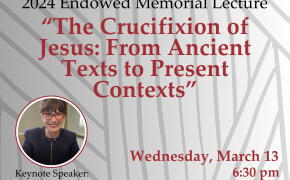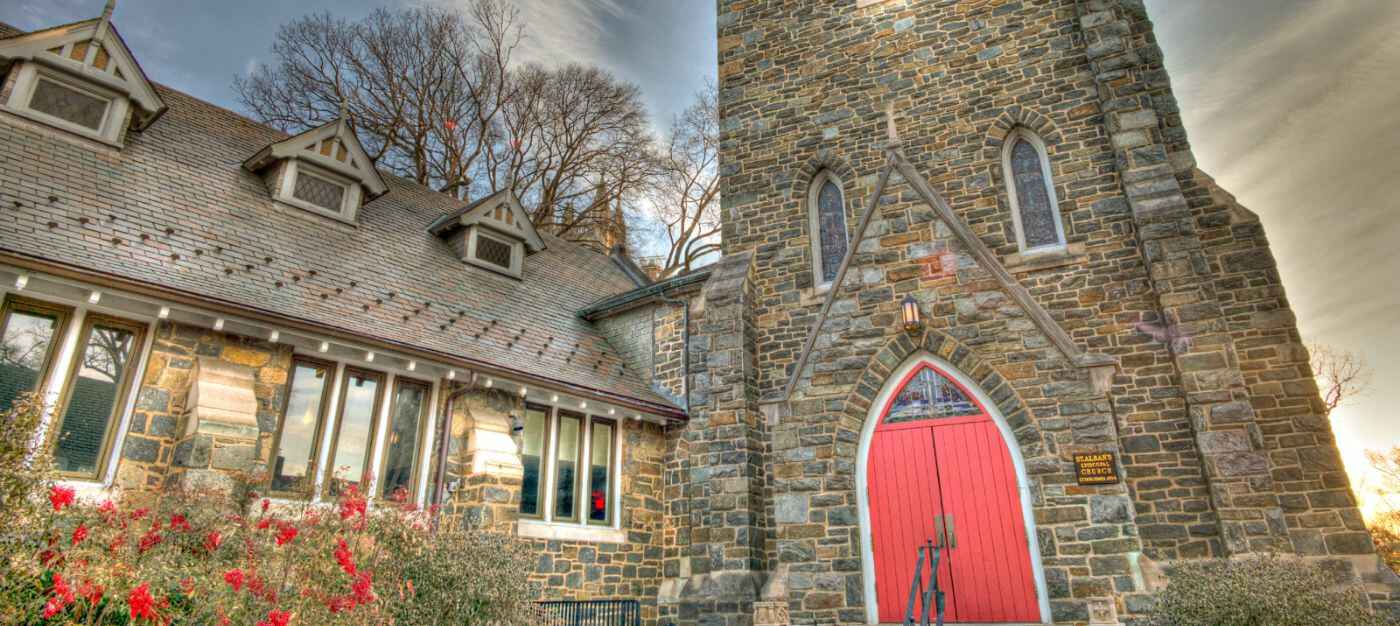

 Welcome to St. Alban’s Church! Every Sunday, and most days in between, people gather in this place to worship, to learn, to grow, to share the joys and struggles of our lives, and to seek God’s grace in the midst of our lives. We do not come because we have it all figured out, but because we are seeking light on the way. We come as we are and welcome one another.
Welcome to St. Alban’s Church! Every Sunday, and most days in between, people gather in this place to worship, to learn, to grow, to share the joys and struggles of our lives, and to seek God’s grace in the midst of our lives. We do not come because we have it all figured out, but because we are seeking light on the way. We come as we are and welcome one another.
On this website, you can find information about our worship, our classes for people of all ages, membership at St. Alban's, and about how we seek to make a difference in this world. We warmly encourage you to join us for a Sunday service or for some of the many other events that happen here. You belong at St. Alban’s.
Please fill out this welcome form to connect with us.
Contact us with any questions. Call (202) 363-8286 or email the church office.
Weekly In-person Sunday Service Schedule (Please note: Service times may be changed during the seasons of Christmas and Lent and during the summer. Please refer to our calendar to confirm the times.):
8 a.m. (English) in the Church
9 a.m. (English) in the Church
11:15 a.m. (English) in the Church
11:15 a.m. (Spanish) in Nourse Hall (same building as the Church)
Communion in one kind (i.e. wafers) will be offered at the main altar, although we will happily bring communion to those for whom steps are challenging.
Weekly Live Sunday Services are live-streamed on our Youtube channel (St. Alban's DC) at 9 a.m. every Sunday, as is our Spanish service at 11:15 a.m.
Evening Prayer Thursdays, 5:30 p.m. via Zoom, join us for a time of reflection and sharing at the close of your busy day. Contact Paul Brewster for the link.
St. Alban’s Episcopal Church is located next to the Washington National Cathedral at the corner of Massachusetts and Wisconsin Avenues in the northwest section of the District of Columbia.
From either direction on the north loop of the Capital Beltway/I-495 follow signs for Route 355/Wisconsin Ave south toward DC. St. Alban’s is located on the left just before the intersection of Massachusetts and Wisconsin Avenues NW. Make a left onto Lych Gate Rd before you reach Massachusetts Ave. As you enter the drive, the church will be on your left and Satterlee Hall and the Rectory on the right. Stay on Lych Gate until it becomes Pilgrim Rd.
From any Virginia main in-bound thoroughfare (George Washington Memorial Parkway, I-395, Route 50, I-66), follow signs to Rosslyn and take the Key Bridge from Rosslyn north across the Potomac River into Georgetown. Go right on M St, left on Wisconsin Ave. St. Alban’s is located on the right just after the intersection of Massachusetts and Wisconsin Avenues NW. Make a right onto Lych Gate Rd after passing Massachusetts. As you enter the drive, the church will be on your left and Satterlee Hall and the Rectory on the right. Stay on Lych Gate until it becomes Pilgrim Rd.
Parking is available on Pilgrim Road Monday-Friday after 3:30 pm and all day Saturday and Sunday. Parking is also available in the Cathedral’s underground garage for a fee Monday- Saturday and for free on Sunday. You may also park on neighborhood streets according to DC parking signs.
Visiting a church for the first time can be a bit daunting. So we have tried to put together the answers to some of the questions you’re likely to have and to ensure that you find a warm welcome here. Click on the questions to learn more.)
What time are services on Sunday morning?
At St. Alban’s, we believe that a child’s spiritual growth is just as important as their physical and intellectual growth. Our goal is to help children name and value the presence and love of God in their lives. We do this through a variety of means – by providing stable and consistent adult mentors, encouraging strong peer relationships, and supporting parents in their families’ faith lives at home.
Worship: This Fall, Children's Chapel meets during the first half of the 9:00 a.m. service in Nourse Hall (a spacious parish hall in the same building as the main worship space.) Kids and families join "big church" at the Peace so everyone can receive Communion together. To learn more, contact the Rev’d Emily Griffin.
Education: We've resumed our formation programs for the 2022-2023 period. Here’s everything you need to know:
Learn more about Children's Ministries
Youth Ministry
As Episcopalians, we follow Jesus Christ as our Lord and Savior. We believe in the Father, Son and Holy Spirit. We believe God is active in our everyday lives through the power of the Holy Spirit.
The mission of the Church is to restore all people to unity with God and with each other in Christ. The Church pursues its mission as it prays and worships, proclaims the gospel, and promotes justice, peace and love. The Church carries out its mission through the ministry of all of its members.
We uphold the Bible and worship with the Book of Common Prayer. We believe the Holy Scriptures are the revealed Word of God. In worship we unite ourselves with one another to acknowledge the holiness of God, to hear God's Word, to offer prayer and praise, and to celebrate the Sacraments. The Celebration of Holy Eucharist is the central act of worship in accordance with Jesus' command to His disciples. Holy Communion may be received by all baptized Christians, not only members of the Episcopal Church.
The Episcopal Church is part of the worldwide Anglican Communion with 70 million members in 165 countries. The word "Episcopal" refers to government by bishops. The historic episcopate continues the work of the first apostles in the Church, guarding the faith, unity and discipline of the Church. Both men and women, including those who are married, are eligible for ordination as deacons, priests and bishops.
We strive to love our neighbors as ourselves and respect the dignity of every person. We welcome all to find a spiritual home in the Episcopal Church.
